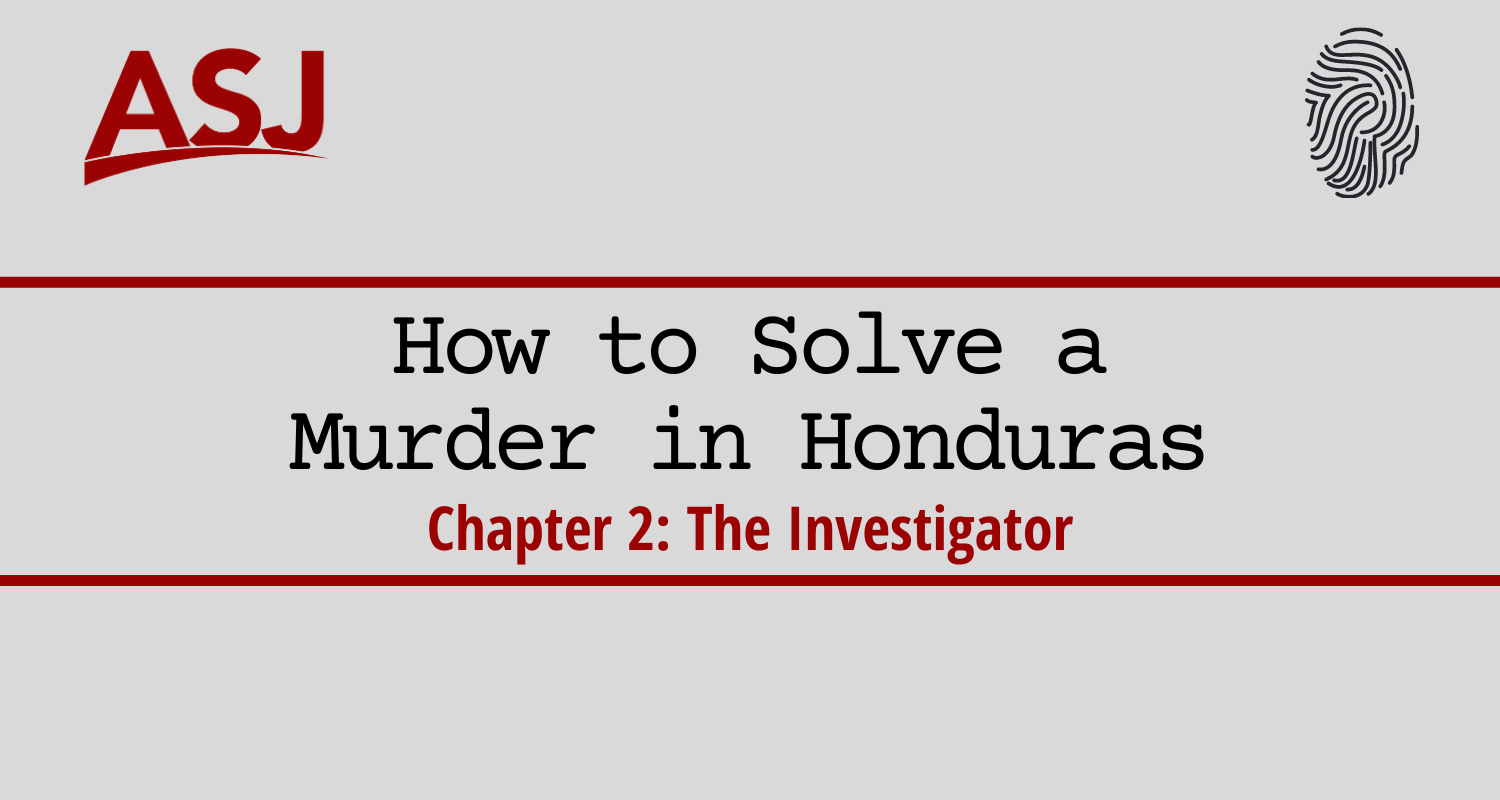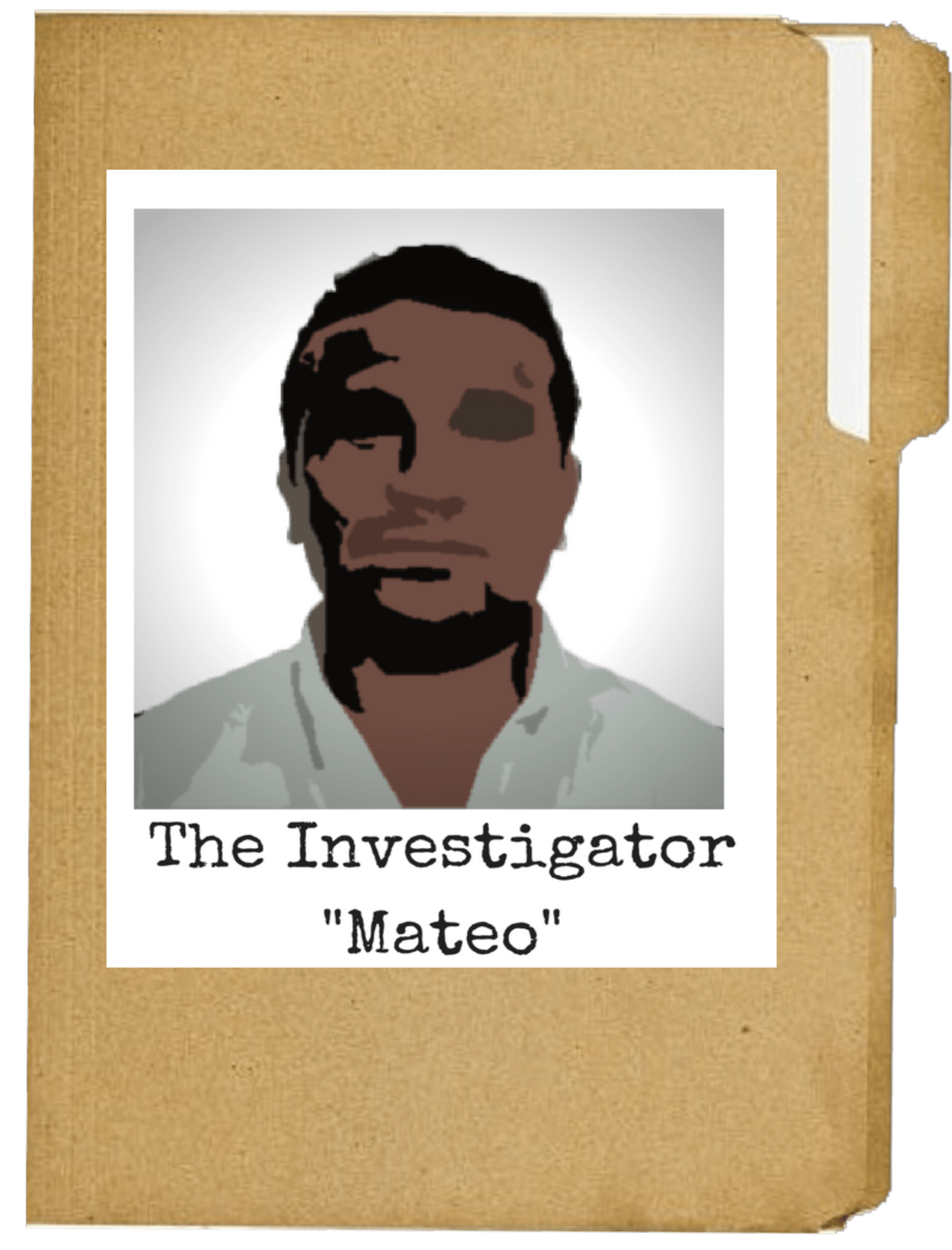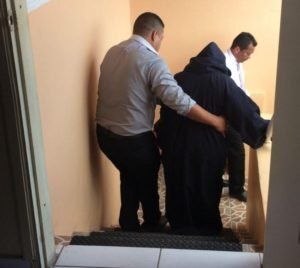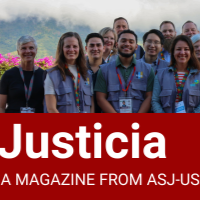Chapter 2: Criminal Investigators Connect with Witnesses and Uncover Evidence
Investigators with ASJ's (formerly known as AJS) Peace and Justice Project accompany police officers as they investigate a crime, helping them identify suspects and know when they have enough information to issue an arrest warrant. Perhaps most importantly, they act as a trusted bridge between victims and authorities, giving witnesses the confidence to report crimes and share their testimony.
“Case files were a single sheet of paper,” Mateo says with disappointment. He pulls one from 2013 from a large binder. “Homicide,” the sheet said, noting the name, age, and occupation of the victim, but little else: “perpetrator unknown.”
With another investigator, Mateo began to do a careful study of the region, sending his discoveries to ASJ’s information analyst. Five different gangs operate in Barrio Viejo, and they have divided the area into zigzagging territories with invisible but fiercely-defended borders. Mateo and the rest of the ASJ team began to take photos, gather information, and carry out interviews about the criminal structures operating in the community.
This technical information would be essential to future victories in the community, but just as important to those victories was something often overlooked in police stations –
the kindness and compassion with which ASJ staff treated victims like Rosa and their families.
Soon after ASJ began working in Barrio Viejo, Mateo visited the local police station, where he found officers speaking aggressively to a visibly-frustrated young woman. Mateo intervened and asked to speak with her.
“They’re treating me like a criminal!” she complained to him, insisting she had information to share, but continuing to talk in circles. Mateo listened patiently. “Okay, I trust you,” she said after almost an hour, “I’ll give you the information because I like how you’re treating me.”
Mateo sees informants as long-term collaborators. “We don’t just talk to beneficiaries on the days we need something from them,” he says, “We’re always checking in with them, asking them how they are, how’s their family, how’s their neighborhood. It’s this treatment that makes the difference,” he says, “Seeing that people are more than another death, another number.”
People who don’t trust the police trust Mateo with reports of crime and violence, and the names of those responsible. In this way, Mateo acts as a bridge between government authorities and the community, helping both to learn how to work together.
New police officers particularly appreciate the input and expertise of the more-experienced criminal investigator. “They’ll take reports to us and ask ‘Is this missing anything?’” Mateo says, “We support them through the whole investigation.” While ASJ investigators cannot formally collect information, they often accompany the police investigator to the crime scene, the morgue, or the forensic medicine unit, noticing anomalies and suggesting routes of investigation for the police officer to take.
Mateo and his colleagues are often instrumental to arrests and convictions, but they don’t like to take credit for themselves. “We don’t want people just to trust us, but ultimately to trust the police, the attorney, and the judges,” he says.
Peace and Justice works to build up community members’ trust in the police, while also building up police capacity so that they can deserve that trust.
The difference has been remarkable. In ASJ’s first year in Barrio Viejo, they saw homicides drop by 50%. The area is still more violent than the national average, but attitudes are beginning to change.
“We are showing people that what they once felt was impossible, is now possible,” Mateo says.





















